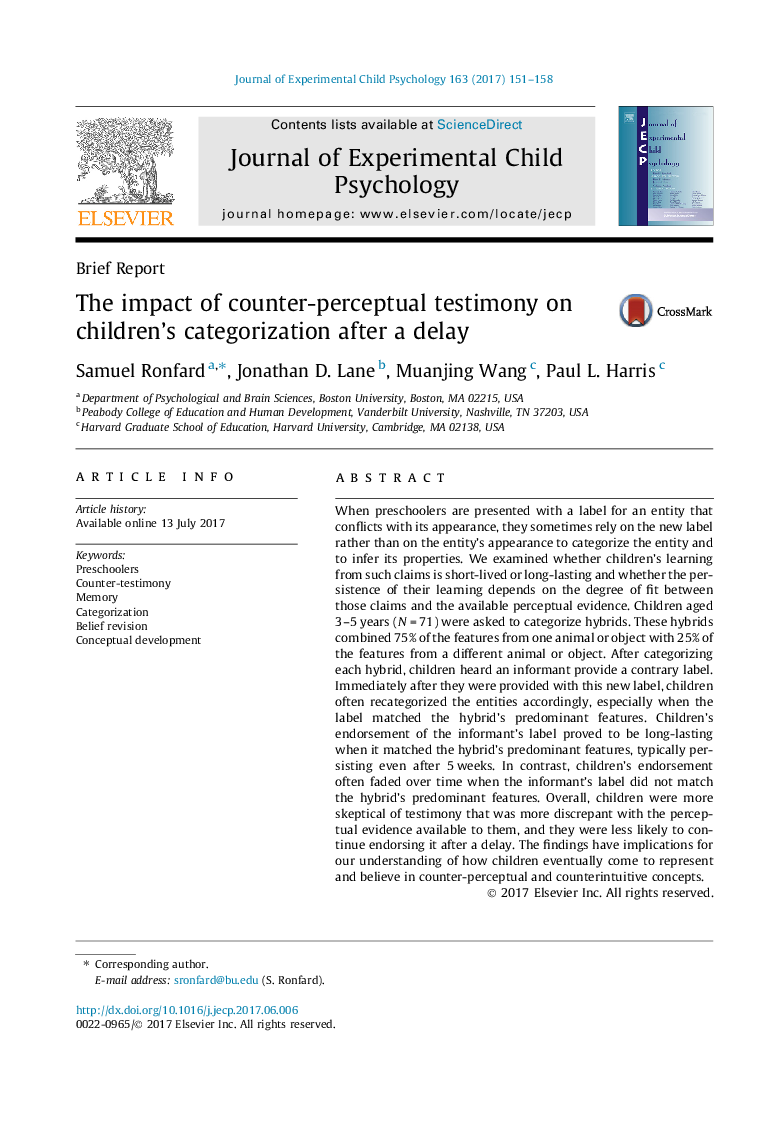| کد مقاله | کد نشریه | سال انتشار | مقاله انگلیسی | نسخه تمام متن |
|---|---|---|---|---|
| 5039934 | 1473449 | 2017 | 8 صفحه PDF | دانلود رایگان |
- Are children's endorsement of counter-testimony short-lived or long-lasting?
- Children typically endorsed testimony mostly consistent with visual evidence.
- Their endorsement of such testimony persisted over several weeks.
- Children less often endorsed testimony mostly inconsistent with visual evidence.
- Their endorsement of such counter-perceptual testimony faded over time.
When preschoolers are presented with a label for an entity that conflicts with its appearance, they sometimes rely on the new label rather than on the entity's appearance to categorize the entity and to infer its properties. We examined whether children's learning from such claims is short-lived or long-lasting and whether the persistence of their learning depends on the degree of fit between those claims and the available perceptual evidence. Children aged 3-5Â years (NÂ =Â 71) were asked to categorize hybrids. These hybrids combined 75% of the features from one animal or object with 25% of the features from a different animal or object. After categorizing each hybrid, children heard an informant provide a contrary label. Immediately after they were provided with this new label, children often recategorized the entities accordingly, especially when the label matched the hybrid's predominant features. Children's endorsement of the informant's label proved to be long-lasting when it matched the hybrid's predominant features, typically persisting even after 5Â weeks. In contrast, children's endorsement often faded over time when the informant's label did not match the hybrid's predominant features. Overall, children were more skeptical of testimony that was more discrepant with the perceptual evidence available to them, and they were less likely to continue endorsing it after a delay. The findings have implications for our understanding of how children eventually come to represent and believe in counter-perceptual and counterintuitive concepts.
Journal: Journal of Experimental Child Psychology - Volume 163, November 2017, Pages 151-158
